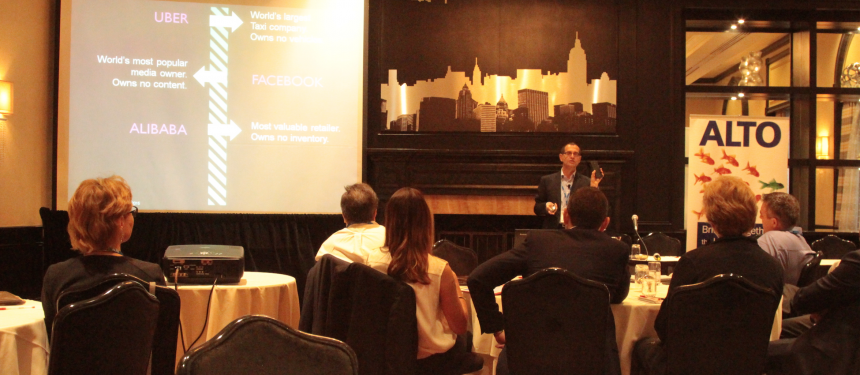Education agencies have a unique opportunity to shape the future of the study travel sector with their proximity to client base. As personalised learning becomes more in demand, agents are more nimble when catering for their clients’ wishes than language schools, which can be slower to adapt to the zeitgeist.

This was the message delivered by education strategist, Dr Alex Grech, at the most recent ALTO seminar in New York to the education agents and language training organisations who make up the membership.
“I have changed my mind about agencies,” said Grech, who has spent some time getting to know the idiosyncracies of the language travel industry.
He observed that rather than becoming redundant, he now felt agencies could better channel and respond to their customers’ demands.
In the digitally entrenched world in which study travel consumers live, Grechpointed out that some of the biggest, billion dollar companies of the last few years are online companies that produce no products of their own.
“The world’s biggest taxi company, Uber, owns no cars,” he said. “Facebook, the world’s most popular media platform, produces no content of its own.”
“Hands up who has a language school, with a building to run and teachers to put in it?” he challenged delegates.
Grech urged the MD-level crowd to consider how business relationships have been upturned, with no more vertical authority from big brands. Consumers make decisions based on trust and referral.
Educators were challenged to put the experience and emotion of studying abroad into their marketing message
Education and people’s expectations of it is transforming too. Lifelong learning, unbundled education, flip teaching were all conversations and buzzwords contributing to a culture of expectation around personalised learning.
During the packed two-day conference, it was universally agreed that the experience of studying abroad is the edge that language schools have over remote language learning opportunity.
But educators were challenged to put the experience and emotion of studying abroad into their marketing message by Jackie Kassteen of ICEF Monitor, who shared a panel with Grech and two education agents, Sanjeev Verma of Intelligent Partners in the Gulf and Fernanda Semeoni ofExperimento in Brazil, moderated by The PIE.
Semeoni noted she felt there was opportunity for agencies like hers (about to turn 50 years old) to move with their market and work with partners offering what their clients wanted, which was contextualised learning, equipping students with a global outlook.
She acknowledged that education agencies had to improve their digital services and continue to add value to thrive and as a defence against direct bookings, which she conceded was an inevitable avenue for schools to develop.
The big niggle that agencies have however with schools is the lack of uniform product descriptions
Verma was less confident about the longevity of his agency business in the Gulf, but this was related to the government funding of students to study abroad in the future. He spoke about diversifying into offering English language training in India, confirming Grech’s prediction that successful agencies will themselves diversify into provision.
The big niggle that agencies have however with schools is the lack of uniform product descriptions, with a myriad of ways of pricing and detailing courses, programmes, accommodation, hours taught (what is a class hour?).
Thiago Espana of World Study in Brazil explained the problem succintly, presenting a new drive for standardisation on product and pricing.
“We need a common language,” he urged, demanding uniformity via a new Industry Standard, such as all programmes detailed by hours taught; explaining how inefficient it is for agencies working with multiple partners at present.
[Source:-The Pie News]
